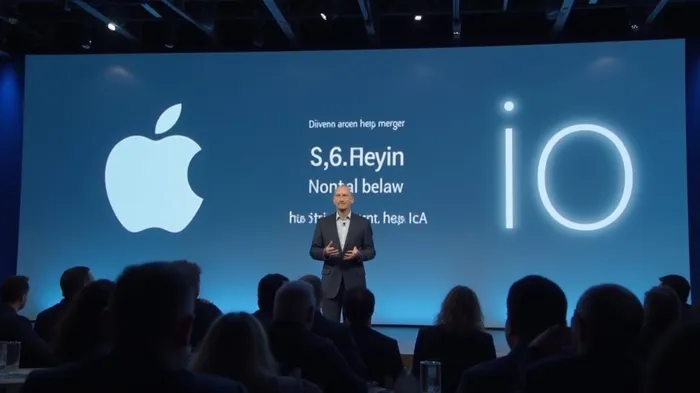Jony Ive's Grand Return: Io's $6.4 Billion AI Merger Signals a Tech Revolution
Before Jony Ive's departure from AppleAAPL-- in 2019, Apple's hardware announcements were often accompanied by his soothing British voice, emphasizing product design. With a pivotal role in inventing the iPhone and Apple Watch, Ive was a symbol of outstanding hardware in Silicon Valley.
On Wednesday, Ive returned with a new video, not for a product launch from Apple but announcing a $6.4 billion merger between his new hardware firm io and OpenAI. Ive will lead the design of new AI hardware products. The announcement signifies a growing belief in Silicon Valley that smart AI assistants could reshape the electronics world, potentially replacing current products like Apple's laptops and smartphones with something entirely new.
This collaboration could serve as a wake-up call for Apple, hinting at a future where AI hardware might overshadow the iPhone's significance. Apple insiders have expressed concern about AI hardware emerging as a competitive threat.
Apple's executive Eddy Cue remarked that AI devices might replace the iPhone within a decade, creating opportunities for new entrants. Meanwhile, Apple has delayed significant improvements to its built-in assistant, Siri. Despite integrating OpenAI for handling complex inquiries, Siri still operates largely as a Q&A system, lacking the conversational fluency of competitors like Google's Gemini.
With OpenAI absorbing talents with Apple backgrounds, including senior designers who've contributed significantly to its products, the collaboration further underscores potential shifts in tech dominance—especially given Apple's challenges with advancing its AI capabilities.
While Apple continues refining its AI strategy amidst internal struggles, competitors are making strides with AI-driven hardware. Meta's and Google's releases highlight the urgency for Apple to innovate, as its former designer now aligns with a major AI player to shape the market's future.
OpenAI's move, coupled with mounting competitive pressures, suggests that the tech giant must adapt quickly or risk falling behind in the rapidly evolving landscape of AI-enhanced electronics.

Stay ahead with real-time Wall Street scoops.
Latest Articles
Stay ahead of the market.
Get curated U.S. market news, insights and key dates delivered to your inbox.

Comments
No comments yet